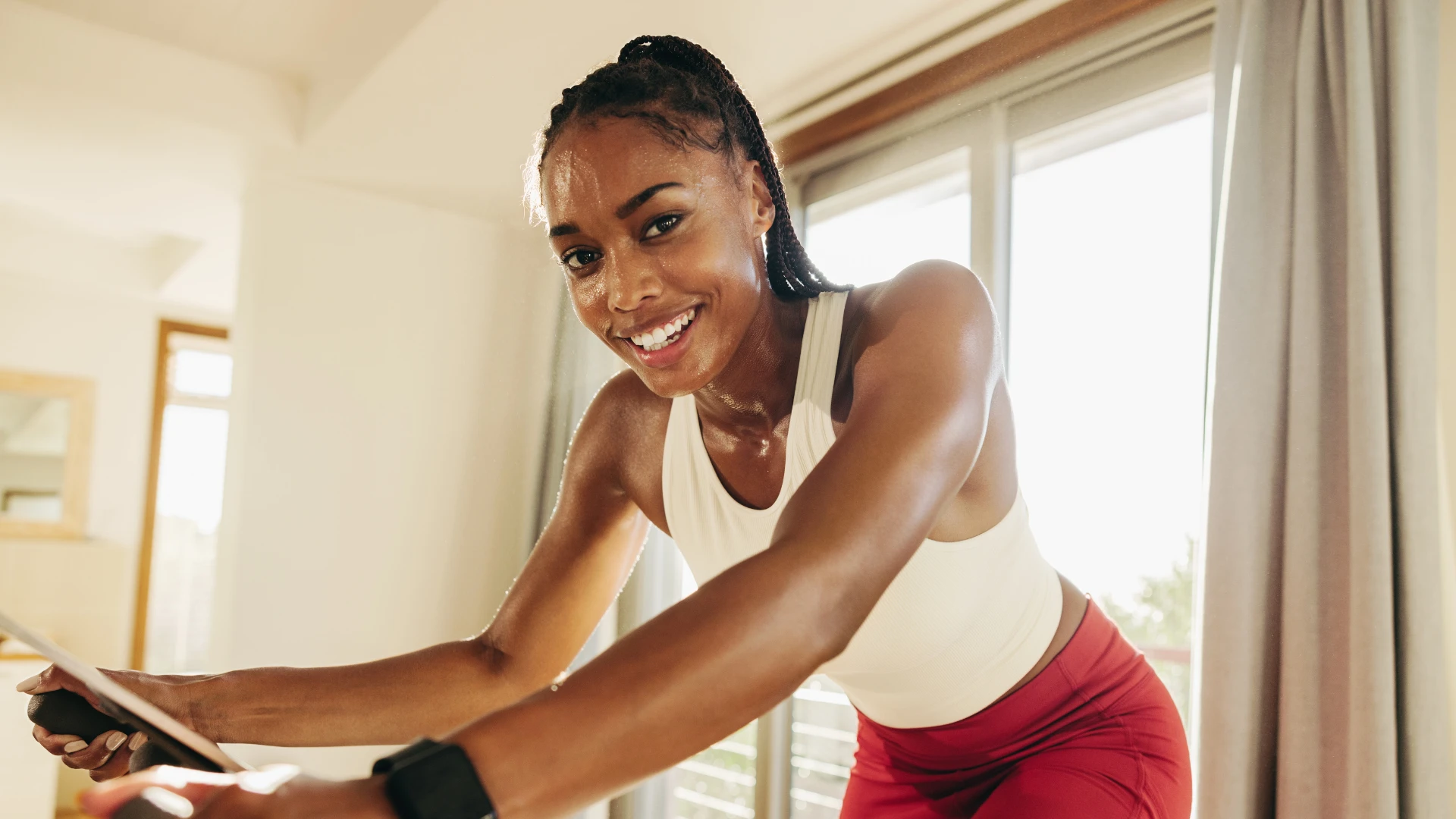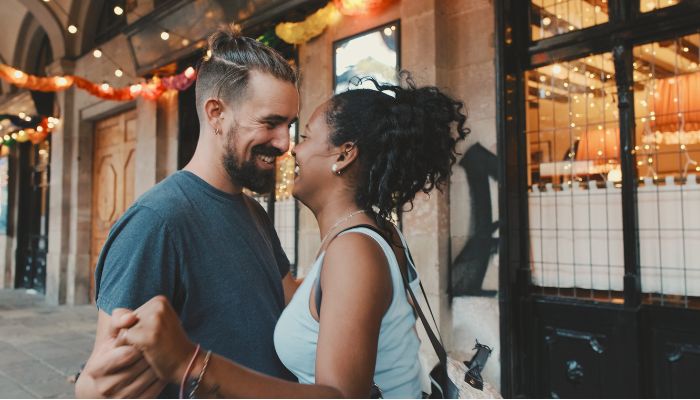In our high-tech-low-accountability society, navigating complex apps and ambiguous relationships can create overwhelming feelings of doubt and confusion.
Dating can feel especially draining this far into a global pandemic, as so many people have experienced prolonged isolation and compounded grief. If you are currently dating or thinking of beginning to date, make sure that you honor the courage and stamina you are demonstrating.
To date, especially during this time of crisis and uncertainty, is to make a declaration of hope, a declaration that you deserve to love and be loved, and that planning for the future is a worthy use of your time and energy.
While dating is immensely challenging, it can also be thrilling. It is a chance to meet someone new, rediscover your passions, and reconnect with yourself. Here are some practices that can help you feel calm and open on a first date.
Before the Date
Before you head out on a first date, take some time (even a few minutes) to ground yourself. Try to avoid rushing from work or another commitment into your date. Your goal is to bring yourself to be neutral (calm, energized, open), so you ensure that the reactions you have to the date reflect what’s actually happening rather than your stress or exhaustion.
Engage in an activity that helps you feel centered and content. Do a workout, cook or eat healthy food, practice a hobby, listen to some music, or talk with friends or family members who make you feel happy. You can also take some time to fill out the phrases below before you go on your date. Tuning into yourself is a powerful experience!
- On a first date, I hate it when I feel…
- On a first date, I hope to feel…
- On a first date, I worry most about…
- On a first date, I would enjoy myself more if…
- On a first date, I want to remember that…
During the Date
Consider the mindset you bring to meeting a potential partner for the very first time. Some people bring a highly critical mindset to a first date, hyper-focusing on how their date looks, what they say and whether they check all of the boxes.
Other people bring a highly self-critical mindset to a first date, focusing on questions like How do I look right now? Am I making them laugh enough? Am I saying the right things? What kind of vibe should I give off? Do I check all their boxes?
How do I measure up to other people they’ve gone out with? Certainly, dating is a process of discernment, but putting your date (or yourself) under a microscope compromises your ability to be present simply.
Rather than viewing a first date as an interview, a test, or a performance, see what happens when you view a first date as an experience, one founded upon a shared desire to understand one another. What might happen if your one main goal going into this experience was to see if there was enough interest for a second date?
Rather than worrying about whether you check off their boxes, what might it like to anchor in on the idea that your only job is to show up and connect. Nothing to analyze. Nothing to solve.
Given the high-stress nature of dating, critical thoughts are wholly understandable. However, these thoughts are distracting and disorienting, taking you out of feeling present to the experience. During the date, notice when that internal critique begins—analyzing their words and gestures and/or hyper-focusing on your own words and gestures.
Return your attention to the present moment—the tea you are sipping, the food you are eating, the music playing in the background. Feel your feet on the ground. Take some deep breaths. You might even excuse yourself and make your way to the restroom. Stretch your arms way up, shake them out, open your jaw really wide, run cool water on your hands and wrists. Come back into your body.
After the Date
When you get home from your first date, consider practicing a solo savor. Before you process the experience with a roommate, best friend, or relative, let the experience settle a bit. Why? Because what’s most important is how you feel about the date. Your friends and family are likely wonderful sounding boards, but they will filter the date data through the lens of their preferences, sensitivities, and beliefs. Process on your own a bit first to get clear about what you want as a next step.
To help people make sense of first date data, I have developed this table, which is a helpful way to clarify and integrate the experience of a first date. The table identifies seven categories and asks you to share two pieces of data: your observation and the story you told yourself about that observation.
For example, your observation may be that your date’s words were kind and encouraging. The story you tell yourself about this observation might be that this person cares about supporting you because you appreciate that type of communication.
When you add your observations to this table, you slow your process down and give yourself a change to sift through a range of reactions. By teasing apart the observation and the story you tell yourself about the observation, you have a chance to bring some intentionality and consciousness to the process of making sense of your reactions.
You get to decide which reactions are worthy of your attention and which ones are not central to your understanding of yourself, this person, and what you want as a next step.
Although the prospect of a first date may forever elevate your heart rate and bring a bit of perspiration to your brow, you can develop a set of practices to use before, during, and after a first date that will help you feel less anxious and more curious.
These practices will help you expand your relational self-awareness, the ongoing practice of better understanding yourself in relation to your intimate partnerships, culture, family, and life experiences, and they will help you feel clear enough to make the big decision: whether or not to go on date number two.
















